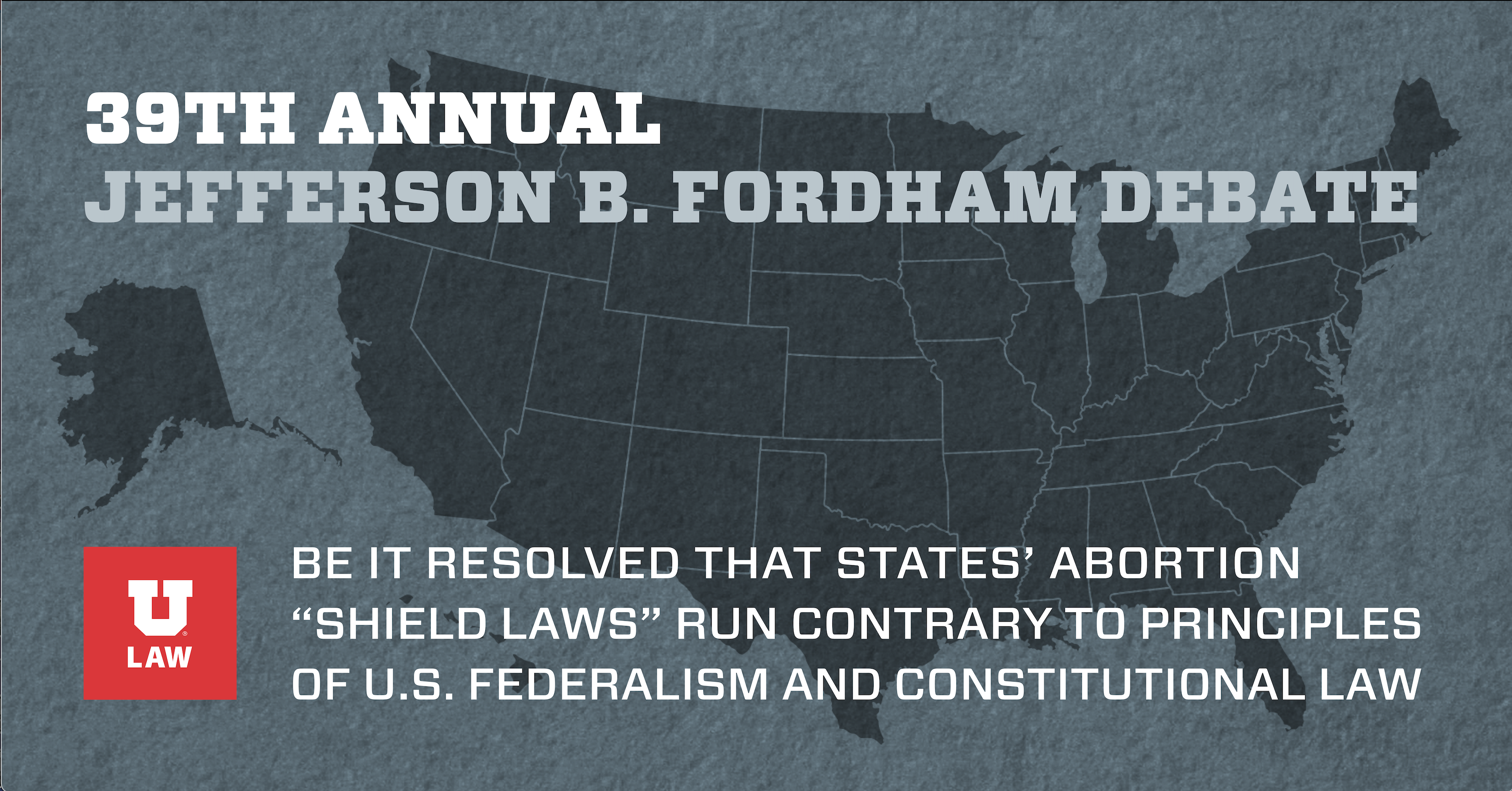
Are abortion shield laws unconstitutional? That controversial question will be the subject of the 39th Annual Jefferson B. Fordham Debate on Monday, Oct. 17 sponsored by the S.J. Quinney College of Law.
A reception will be held at 5:30 p.m., with the debate starting at 6 p.m. and a Q&A session with the debaters to follow. The debate will be held in the Moot Courtroom on the sixth floor of the law school, 383 S. University Street. There is also a virtual viewing option.
The event is free and open to the public, but RSVPs are requested.
“Shield laws” are laws that protect healthcare providers from liability when providing abortion care to out-of-state residents — but do these laws run contrary to principles of U.S. federalism and constitutional law?
The Dobbs v. Jackson Women’s Health Organization Supreme Court decision from June 2022 that overturned Roe v. Wade held that abortion was not a constitutionally protected right. Without federal constitutional protection, state laws now govern access to abortion. Some states have passed laws severely restricting or banning abortion, and other states have passed “shield laws”—laws that protect abortion providers from civil and criminal liabilities stemming from abortion care provided to out-of-state residents.
Proponents of abortion shield laws argue that such laws are necessary to assure in-state abortion providers that they will not be penalized by another state for providing care to residents from those states. Shield laws, they argue, are a constitutionally permitted way to provide safety from prosecution under the laws of another state.
Opponents of shield laws argue that such laws undermine U.S. notions of comity and federalism as well as test constitutional principles underpinning states’ sovereignty over its own citizens.
Two of the nation’s leading experts—Rachel Rebouche and Charlie Silver—will explore this evolving topic during the debate.
Rachel Rebouché is the Dean and James E. Beasley Professor of Law at the Temple University School of Law. She is also a Faculty Fellow at Temple’s Center for Public Health Law Research and a leading scholar in family law, public health, and reproductive health law.
Charles Silver holds the Roy W. and Eugenia C. McDonald Endowed Chair in Civil Procedure at the University of Texas at Austin School of Law. His research focuses on aggregate lawsuits, professional responsibility, and health care law and policy (with an emphasis on the payment system).
The Fordham Debate honors professor Jefferson B. Fordham, an outstanding legal scholar and defender of individual and civil rights, who joined the University of Utah College of Law in 1972. This annual debate addresses notable public policy and legal issues.
